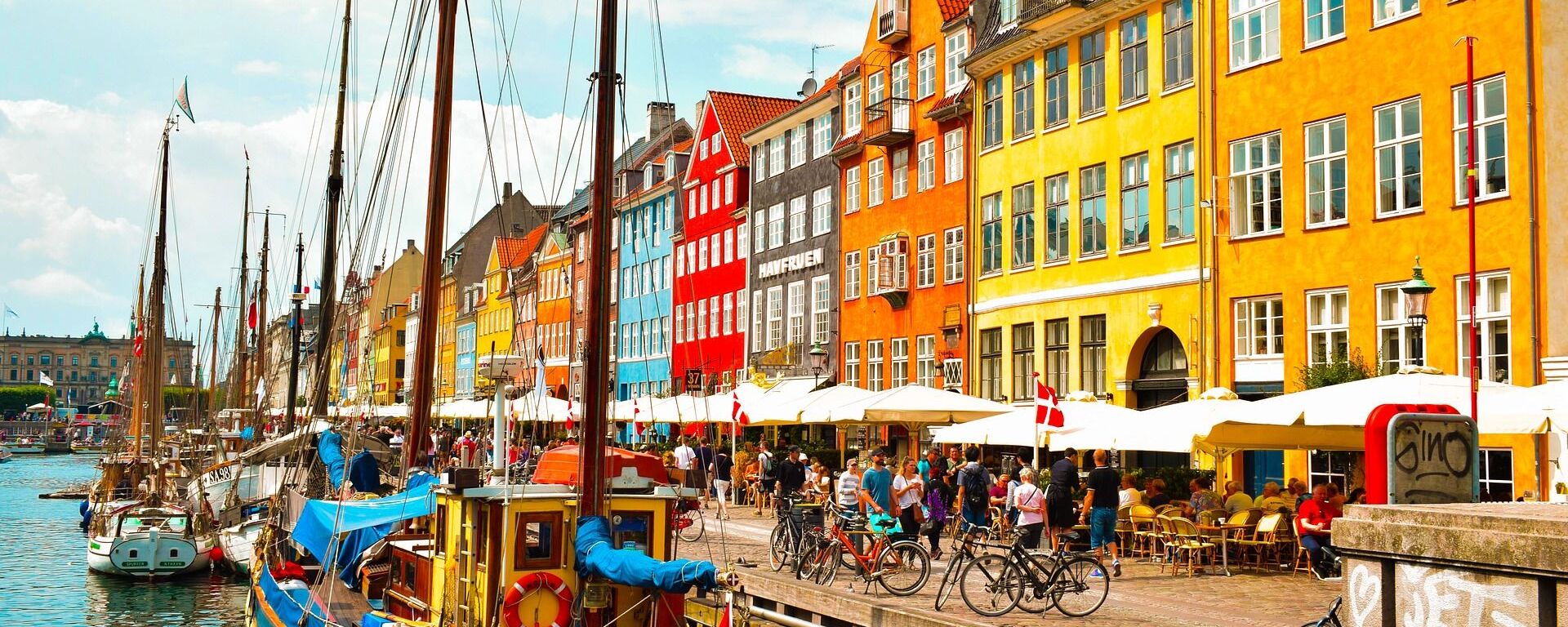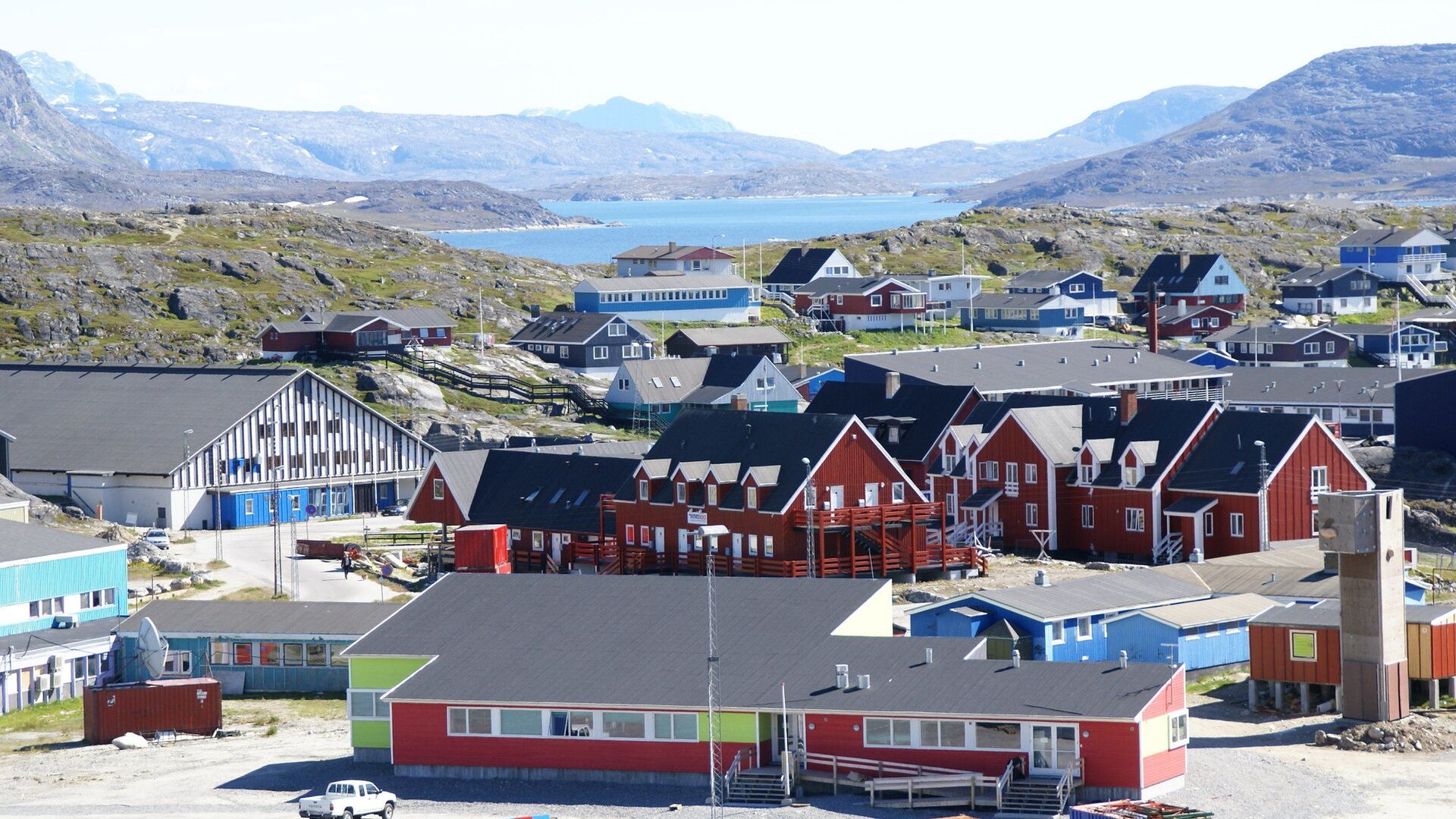https://sputnikglobe.com/20211122/greenland-bans-unvaccinated-from-public-places-after-first-covid-19-death-1090916386.html
Greenland Bans Unvaccinated From Public Places After First COVID-19 Death
Greenland Bans Unvaccinated From Public Places After First COVID-19 Death
Sputnik International
While sparsely-populated Greenland has throughout the pandemic continuously introduced local restrictions in a bid to curb the spread of COVID-19, this autumn... 22.11.2021, Sputnik International
2021-11-22T07:02+0000
2021-11-22T07:02+0000
2021-11-22T07:02+0000
denmark
greenland
newsfeed
europe
scandinavia
covid-19
https://cdn1.img.sputnikglobe.com/img/07e5/05/15/1082956037_0:107:2048:1259_1920x0_80_0_0_e0aa371183a87b1299a2225038e5dce6.jpg
Following its first COVID-related death, which occurred on Saturday, 20 November, Greenland has banned the unvaccinated from public places, reserving restaurants, hair salons and other facilities for the fully-vaccinated.According to the government, the measure is meant “to prevent the infection from spreading from schoolchildren to the rest of society”, Danish TV2 reported.Previously, one could get around the vaccination requirement with a negative COVID-19 test, but now this is no longer possible.The new rules apply to the Greenlandic capital of Nuuk, Upernavik and nine surrounding settlements in the municipality of Avannaata, currently affected by outbreaks.The requirement is valid at restaurants, cafes, pubs, discos and their associated outdoor areas; cultural institutions such as libraries, cultural centres, cinemas, museums and exhibition halls; citizens' houses and town halls; indoor and outdoor sports facilities such as sports halls, swimming pools, fitness centres and football pitches; hairdressers, masseurs, beauty clinics and the like, as well as shops that don't sell groceries.The rules apply to all persons over the age of two who are not covered by the special exemption provisions. As children between the ages of 2 and 12 are not offered vaccines in Greenland, they don't have access to the aforementioned places unless they have been infected with coronavirus and can prove it with a positive PCR test that is at least 14 days and at most 12 weeks old. The new rules have sparked questions whether children are allowed to travel by bus. Therefore, the government subsequently clarified that children and unvaccinated adults can continue to use public transport in the country if they wear a face mask. However, long-distance travel remains a privilege of the vaccinated. Throughout the pandemic, Greenland has continuously introduced local restrictions to curb outbreaks. For instance, in August, an immediate ban on the sale and serving of alcohol was introduced in the town of Sisiumut. Nevertheless, since the summer, however, the world's largest island has experienced several outbreaks amid a rising infection rate.So far, sparsely-populated Greenland, which is part of the Danish Realm, has seen 1,129 cases of COVID-19, of them 167 still active. 66 percent of the island's 56,000-strong population is fully vaccinated.
https://sputnikglobe.com/20211116/denmark-sees-record-covid-19-morbidity-while-professor-warns-of-further-spread-1090765756.html
denmark
greenland
scandinavia
Sputnik International
feedback@sputniknews.com
+74956456601
MIA „Rosiya Segodnya“
2021
News
en_EN
Sputnik International
feedback@sputniknews.com
+74956456601
MIA „Rosiya Segodnya“
Sputnik International
feedback@sputniknews.com
+74956456601
MIA „Rosiya Segodnya“
denmark, greenland, newsfeed, europe, scandinavia, covid-19
denmark, greenland, newsfeed, europe, scandinavia, covid-19
Greenland Bans Unvaccinated From Public Places After First COVID-19 Death
While sparsely-populated Greenland has throughout the pandemic continuously introduced local restrictions in a bid to curb the spread of COVID-19, this autumn, the world's largest island has experienced several outbreaks amid a rising infection rate, despite a solid vaccination rate.
Following its first COVID-related death, which occurred on Saturday, 20 November, Greenland has banned the unvaccinated from public places, reserving restaurants, hair salons and other facilities for the fully-vaccinated.
According to the government, the measure is meant “to prevent the infection from spreading from schoolchildren to the rest of society”, Danish TV2
reported.
“Every death is a tragedy. Unfortunately, we in this country are at a stage in the epidemic, where it is entirely expected that the disease will cost human lives and otherwise develop as elsewhere across the world,” national doctor Henrik Hansen said in a press release.
Previously, one could get around the vaccination requirement with a negative COVID-19 test, but now this is no longer possible.
The new rules apply to the Greenlandic capital of Nuuk, Upernavik and nine surrounding settlements in the municipality of Avannaata, currently affected by outbreaks.
The requirement is valid at restaurants, cafes, pubs, discos and their associated outdoor areas; cultural institutions such as libraries, cultural centres, cinemas, museums and exhibition halls; citizens' houses and town halls; indoor and outdoor sports facilities such as sports halls, swimming pools, fitness centres and football pitches; hairdressers, masseurs, beauty clinics and the like, as well as shops that don't sell groceries.
The rules apply to all persons over the age of two who are not covered by the special exemption provisions.
As children between the ages of 2 and 12 are not offered vaccines in Greenland, they don't have access to the aforementioned places unless they have been infected with coronavirus and can prove it with a positive PCR test that is at least 14 days and at most 12 weeks old.
The new rules have sparked questions whether children are allowed to travel by bus. Therefore, the government subsequently clarified that children and unvaccinated adults can continue to use public transport in the country if they wear a face mask. However, long-distance travel remains a privilege of the vaccinated.

16 November 2021, 06:41 GMT
Throughout the pandemic, Greenland has continuously introduced local restrictions to curb outbreaks. For instance, in August, an immediate ban on the sale and serving of alcohol was introduced in the town of Sisiumut. Nevertheless, since the summer, however, the world's largest island has experienced several outbreaks amid a rising infection rate.
So far, sparsely-populated Greenland, which is part of the Danish Realm, has seen 1,129 cases of COVID-19, of them 167 still active. 66 percent of the island's 56,000-strong population is fully vaccinated.




